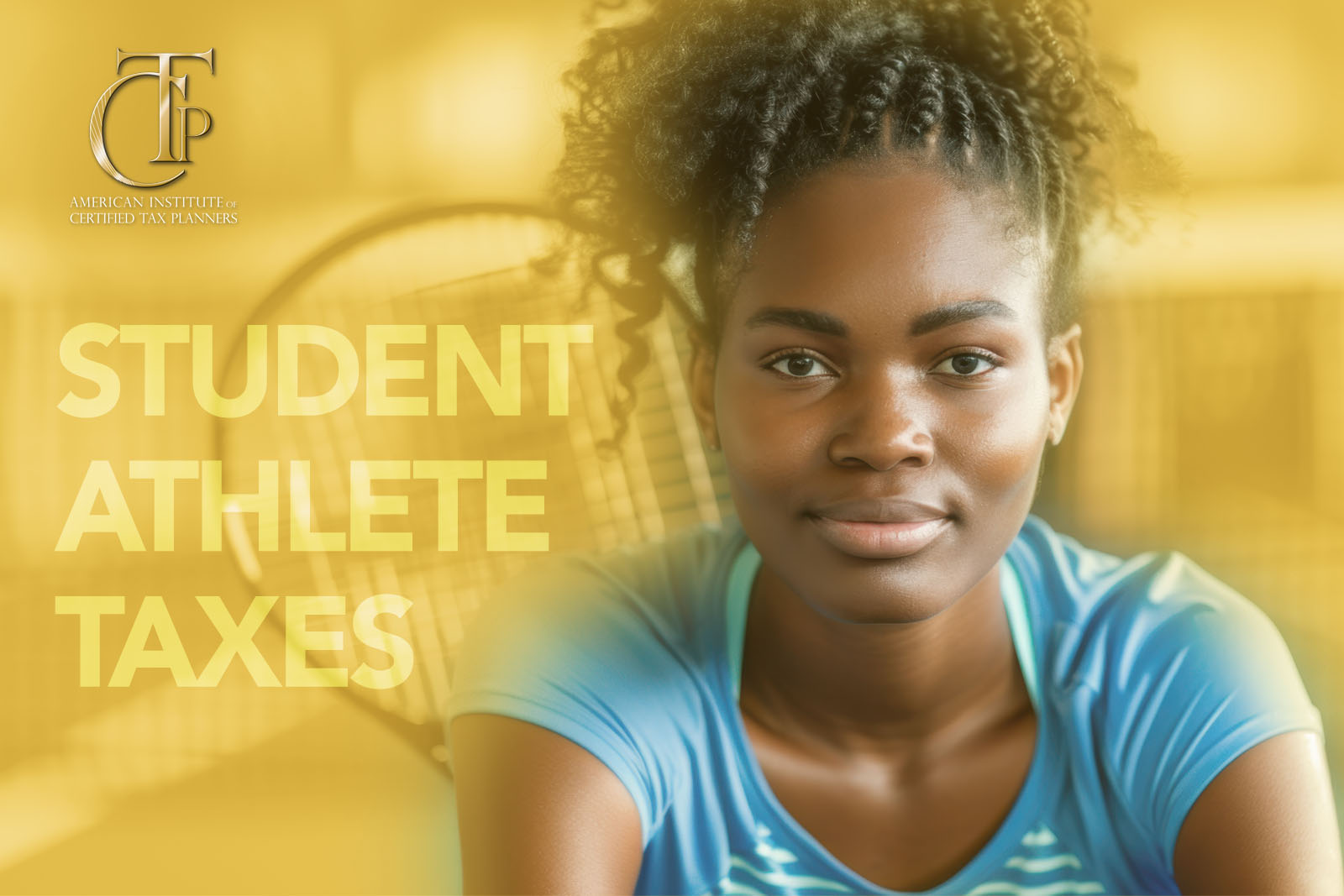In recent years, college athletes at NCAA Division I schools are faced with a new opportunity: turning their burgeoning sports career into a profitable business. Before 2021, student athletes were prohibited from earning income on the use of their “name, image, and likeness” (or “NIL”). However, a pivotal court case overturned this rule and gave students licensing rights. Popular college and even high school athletes can now earn money from endorsement deals with popular brands, the use of their “NIL” in video games, or through their own social media accounts.
This change opens up a new market and opportunity for us as tax planners. Tax planners might work with the students
themselves or the team’s fan base and donors. The alumni and major donors to the school might also form an “NIL collective,” an organization that pools funds to secure “name, image, and likeness” deals for student athletes. Since schools still cannot compensate students directly, this provides a benefit to athletes since they can be paid for brand sponsorships, autograph signings, local commercial appearances, and similar opportunities.
Whether you are working with students, donors, or NIL collectives, a major consideration is what entity type to recommend to secure the biggest tax savings. Below we’ll explore how to approach this decision for each client type and name a few other key strategies you will want to factor in.
When you are working directly with student athletes, most of the income you’ll be dealing with is 1099-NEC income for nonemployee compensation. Whether or not they actually receive 1099s, these athletes are essentially functioning as independent contractors. This means there is no tax withholding at the time of payment, and the student needs to proactively manage their quarterly estimated tax payments. This is a major opportunity to add value as a tax planner! More likely than not, the student is not thinking about how much money to set aside for their taxes. Whether you help them set up a system or connect them with an accountant, this is a major way to help your client and ensure they have cash on-hand when the next deadline hits.
Keep in mind that with a brand new athlete who just turned 18, they may not have any idea how taxes work and may not realize the importance of tracking all of their expenses—their travel, their training, their equipment, their marketing, their social media fees, or the editing software they use to make videos could all be deductible! Educating your client on the importance of record keeping could be the difference between keeping most of their income or seeing a big chunk of it lost to the IRS.
Selecting an Entity Type
Another aspect of tax planning is to determine the best entity type for the student. If the student does not opt to set up a
formal business organization, we will treat them as a sole proprietor. Their income will be reported on Schedule C, and they will be subject to the pros and the cons that come along with a sole proprietorship. This includes self-employment tax, which can be as high as 15.3%. Even so, a sole proprietorship could be the simplest and best choice for the athlete. You won’t know until you actually crunch the numbers based on the student’s expected income and other key factors.
For instance, you will want to consider the fact that the athlete’s work counts as a specified service, trade, or business
(SSTB). If they are a sole proprietor and they are drawing a high income, this could limit how much of a qualified business income (QBI) deduction they are eligible to receive. For 2025, single filers will see the QBI benefit start to phase out at $197,300 in income. At the $247,300 mark, the student would not be eligible for the QBI deduction at all. Top athletes can bring in well above the six-figure mark, but if their total taxable income is still below $197,300 they can qualify for that hefty 20% tax deduction.
The QBI deduction could be a motivator to set up an S corporation instead of a sole proprietorship. Why? With an S
corporation, you have reasonable compensation (the wages the company pays the athlete as a “salary”) and distributions (which are treated like shareholder profits not self-employment income). Reasonable compensation cannot be counted as qualified business income. This lowers the amount left for QBI but could also increase the likelihood of staying under that income threshold for the 20% deduction.
What if the athlete’s income is high enough that they cannot qualify for the QBI deduction under any circumstances? A C
corporation is another viable option. This entity type can be valuable if you are hoping to take advantage of tax-free fringe benefits to lower your client’s overall tax bill.
Reducing Taxable Income
Once we have determined what entity type is best for the student athlete, we can go about formulating our tax strategy the way we usually do. Does the student have an apartment where they can set aside space for a home office and take advantage of the home office deduction? Could we set up a retirement plan and leverage related tax deductions? Absolutely. Remember, the athlete is essentially running an endorsement company that has its own business expenses that can be treated like any other business.
***
Finally, the student may actually benefit from setting up multiple types of entities. Say they are receiving income through brand endorsements, but they also have an NIL deal with a video game company. If they are doing consulting on a video game, that could count as non-SSTB income and be eligible for different tax benefits. Similarly, an athlete with a social media following might be selling merchandise online—that would also be non-SSTB income.
Summary
Since the courts granted licensing rights to student athletes, this has become a growing market for tax professionals. These athletes often have the opportunity to earn considerable income through endorsements and other NIL deals, but without the help of a tax expert, they may find themselves unprepared to pay their considerable tax bill.
Instead, you can invite new clients into a mutually beneficial situation: the student athletes can focus on their sport,
their education, and their travels while you, as the tax planner, focus on staying up-to-date on evolving tax laws and best practices for tax planning so they are fully ready for the next tax season.
To help you stay informed on the latest court cases and tax benefits that could impact student athletes, sign up to become a Certified Tax Planner today.





